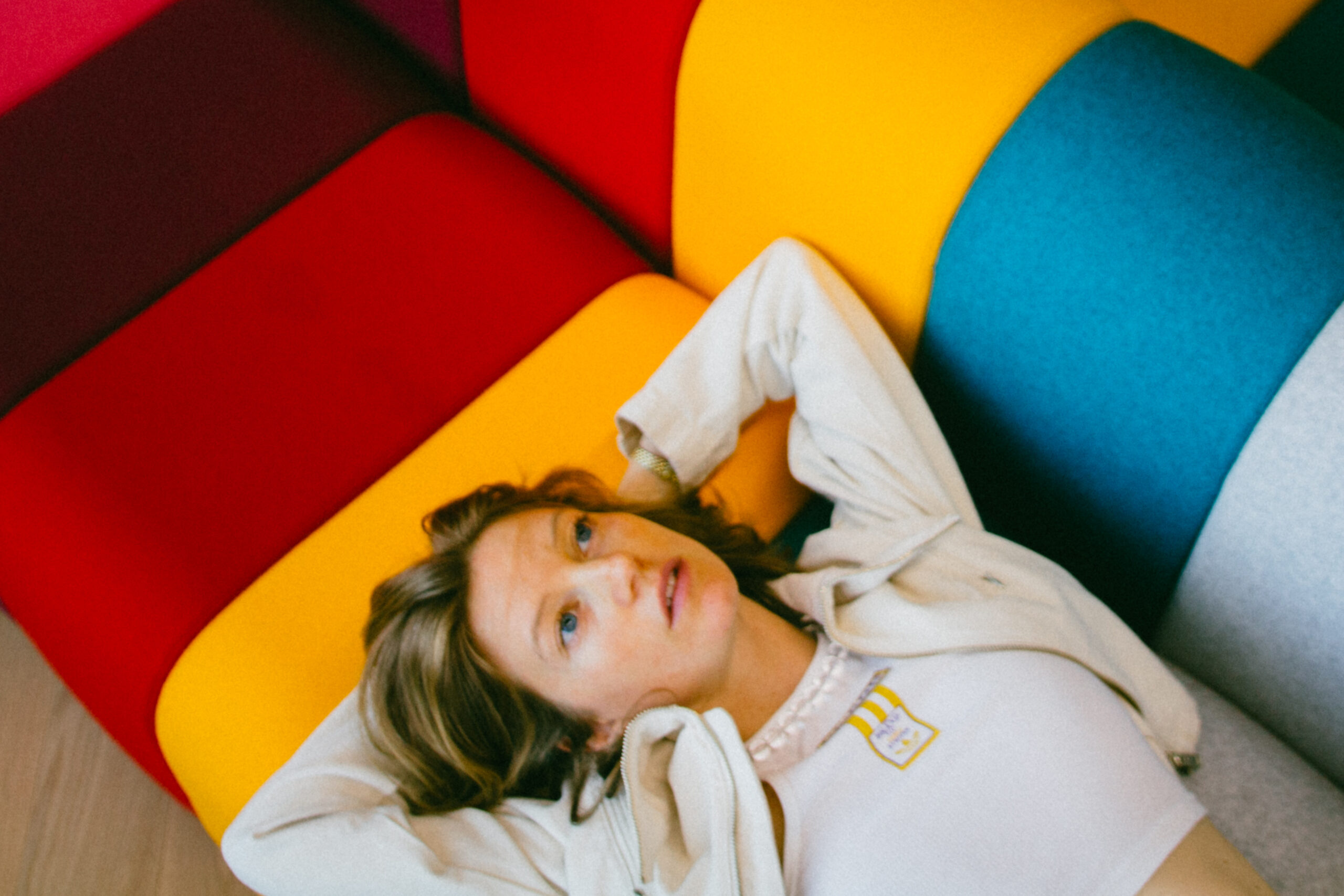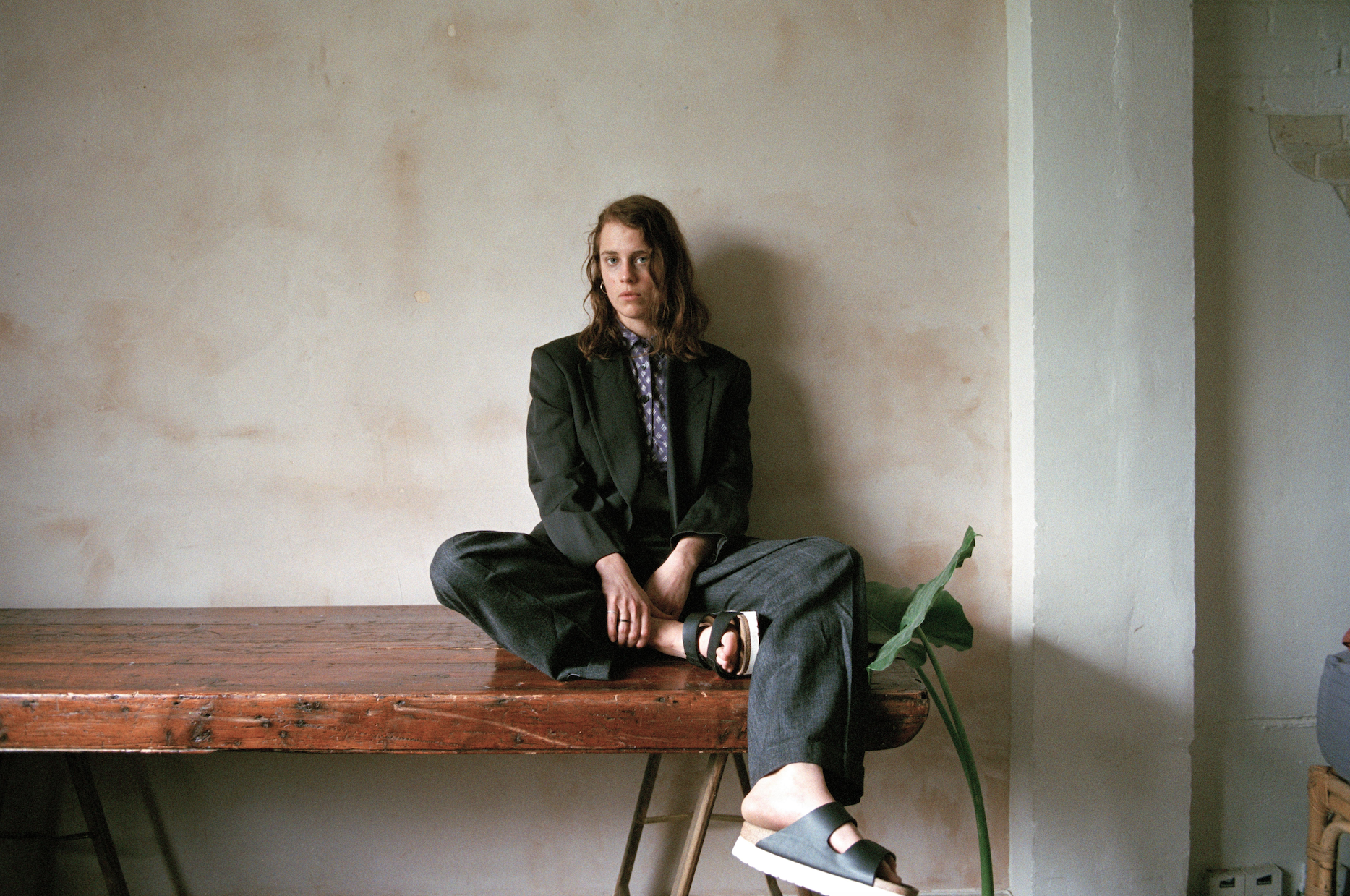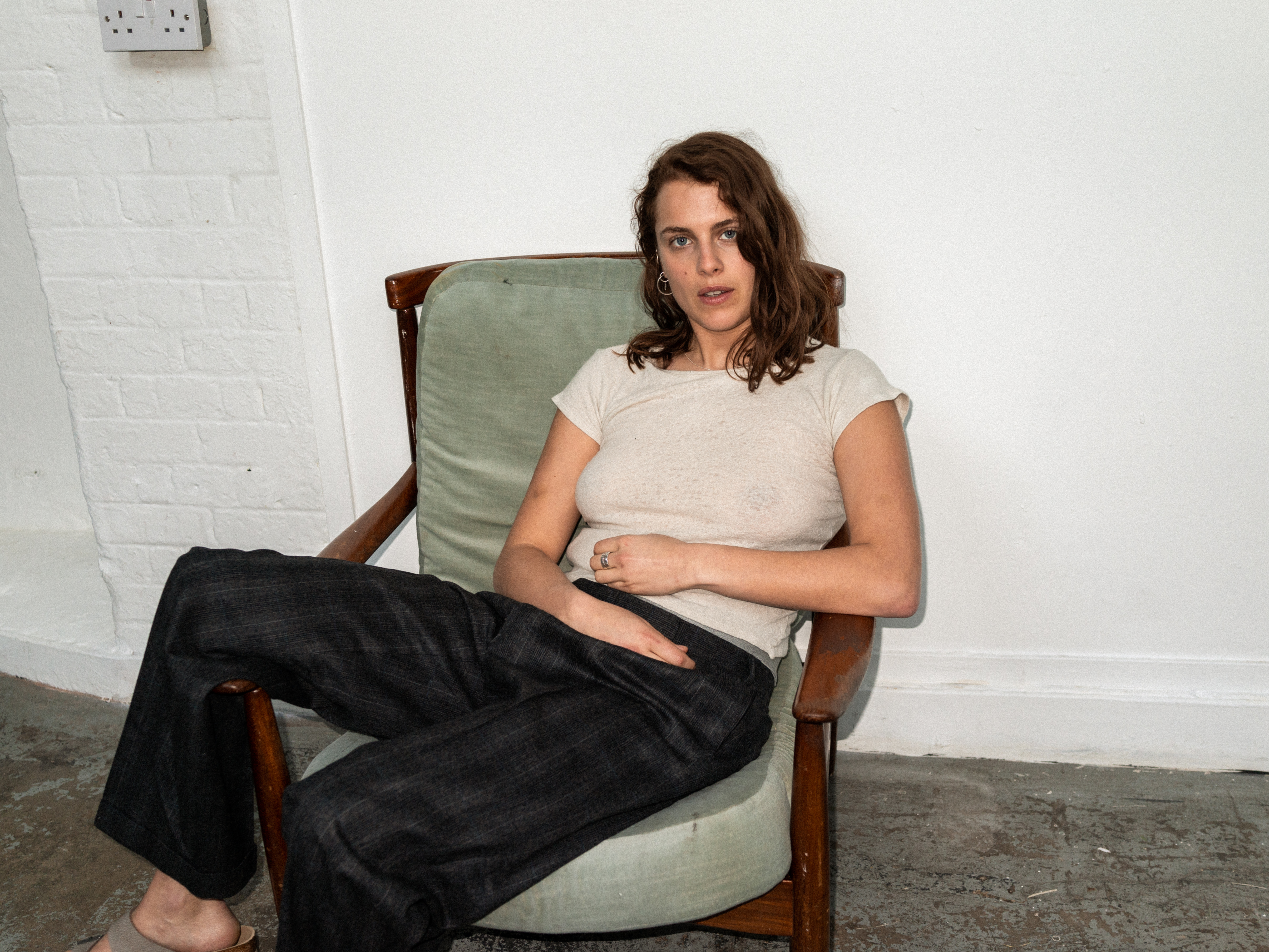
Foto-© Joost Vandebrug
Es gibt Wörter deutschen Ursprungs, die im englischen Sprachgebrauch vorkommen. Eines davon ist Wanderlust. Marika Hackman kennt es und hält viel von seiner Bedeutung. So sehr, dass sie gleich den ersten Song auf ihrem neuen Album Any Human Friend danach benannt hat. Das macht absolut Sinn. Mit ihrem Debüt We Slept At Last ließ sich die Sängerin und Songschreiberin in die Folk-Richtung treiben, der Nachfolger I‘m Not Your Man war barscher und von 90er-Indie-Rock geprägt. Jetzt wendet sie sich der elektronischen Musik und auch dem Pop zu. Marika ist musikalisch gesehen eine echte Wanderfrau. Gleich geblieben ist ihr Interesse an der Exploration der menschlichen Seele aus queerer Sicht. Es gibt gute Gründe, sich bei der 27jährigen nach dem Gang der Dinge zu erkundigen. Dass sie auch für kleine Schweinereien zu haben ist, wie sie betont, macht die Sache natürlich maximal spannend.
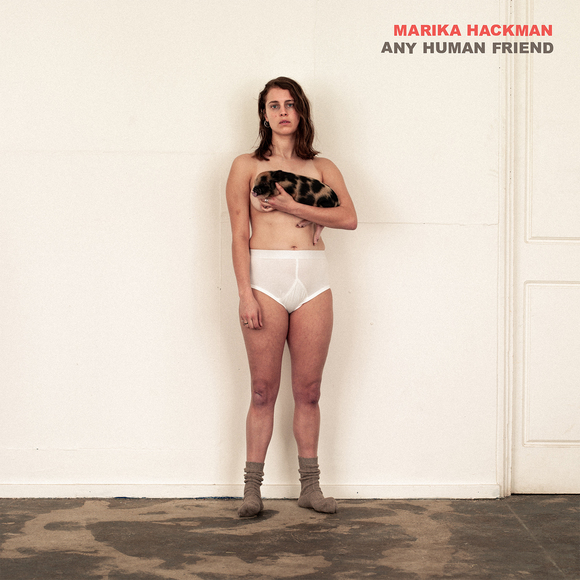
Marika, the three albums you‘ve made so far are pretty distinct from another. Deliberately so?
Yeah, definitely. A part of that is that I like to challenge myself. Changing sound and trying out new instruments is a great way of growing. I also get bored quite quickly, I don‘t ever want to make a record that sounds exactly like one I‘ve already made. That seems pointless just in terms of things taking up space in the world.
How did the synthesizer help you while you took the next step?
The synth came in while I was writing the songs. I had a little keyboard which I hadn‘t used much before throughout my writing over the last seven years. I also wanted this album to be poppier and slicker and have more electronic sound to it. The last one was a bit rough and raw and guitar-oriented. I was shredding it out in a room with a bunch of girls, I loved it. With this one I‘m bringing it back to the working technique of layering everything up. You have got such a big breadth of different sounds you can get out of a synth, that gives it an extra bite. David Wrench, who I‘ve co-produced the record with, has an amazing collection of synths from the 80s and 90s. It was fun going in and exploring with those.
Was it exciting to work with a man who has done production for Frank Ocean and The xx, just to name two?
Yeah, really exciting. Working with David was such a new experience because I worked with Charlie Andrew for the past six or seven years. Now it was going into the studio with someone new who‘s worked with much poppier acts and who is a person who is recognized in the business as having the best ears. I could come in with all these songs fully fleshed out but I knew that he would be able to capture those sounds and add an extra twist. He works in a different way to Charlie, he‘s really quick and still keeps a core of rawness alongside the slick poppy sound. It still has this directness, these gnarly guitar sounds.
Which artists who have used synths have inspired you?
I think Tame Impala was a good band for that kind of thing, I like how it‘s mixed with the bass and guitar sound and how it‘s it‘s layered together so it is really tight. Then there are pop bands like Muna and my ex-girlfriend Amber Bain of Japanese House….
…your ex-girlfriend who is still your best friend, I hear…..
…she‘s still my best friend, yeah. (laughs) All these people are friends but also incredible musicians. It‘s different kinds of uses of the synth, maybe slightly more mournful. Perhaps it really threw me in coming into this record with more fondness for the electronic side of stuff. Before I‘ve been very much: Yeah, guitars! Now I wanted to have a go with other things and see what I can do with it.
You‘re definitely having a proper go on this record. You don‘t sound like anybody else now because as opposed to other artists in the indie world you‘re putting your point across in a self-confident manner. There‘s one song about masturbation, one is about a girlfriend who doesn‘t seem to know how far she wants to go into the queer direction. Other artists don‘t do that, they often shy away from overt meanings. Why are you happy to be more open?
I think it‘s growing up. You become more self-confident as a person as you get older. It‘s also growing within the industry learning about who I am as an artist and what I want to achieve. I used to really shy from anyone coming into my private life. The lyrics were quite abstract on the first EPs and records that I have released. Then I had this moment on my second album I‘m Not Your Man with Boyfriend, seeing the response to a song on an album like that from people all over the world while I was touring. These 15- and 16-year- olds that come on to me and say they felt comfortable to come out to their parents having listened to my record. Hearing stuff like that is not one of the reasons I went into this industry but it is now one of the things that keeps me going. It‘s like: Wow, I‘m actually having an effect on people in a way I didn‘t ever think I would. I didn‘t have an artist like that when I was growing up who was saying things I could relate to.
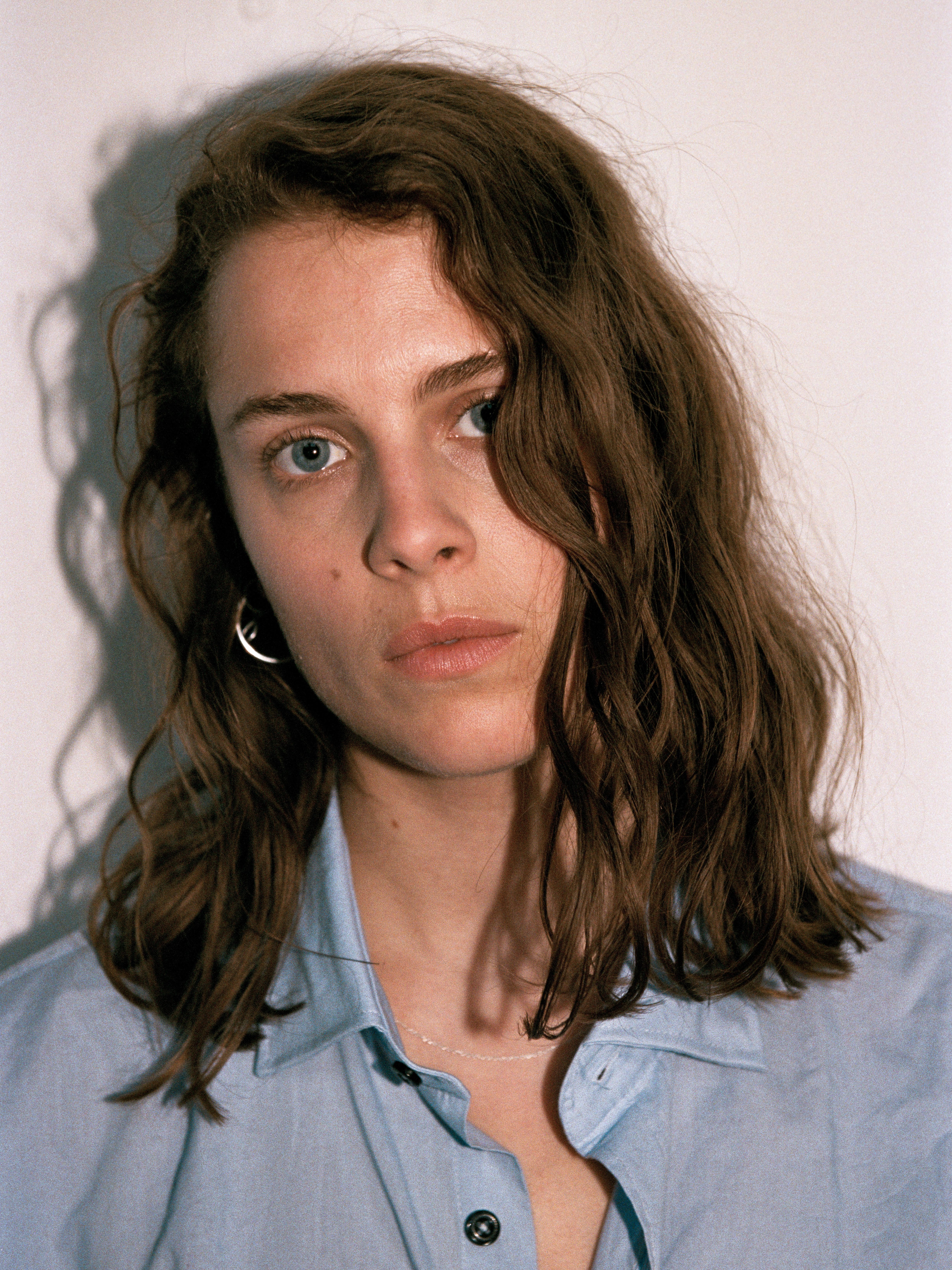
In your youth you couldn‘t find any artist who spoke to you, no Joni Mitchell or PJ Harvey?
In my youth I listened to a lot of music, my family was a very musical household and a lot of artists spoke to me in different ways. Joni Mitchell – of course those melodies and songs hit you at a gut level. But in terms of having anyone singing openly about being a queer woman who was also not someone like k.d. lang with a strong overpowering masculine feminine role? It was difficult. Now there are a lot more people out there who are speaking honestly about relationships between women. They give me the feeling I‘m a part of something that is accepted.
Are you totally convinced that societies as a whole are changing and there‘s more openness and understanding towards gender roles?
Yeah, I think there‘s definitely a palpable shift compared to the time when I was 15 and a teenager in the mid noughties. There‘s been a huge shift in the last ten years. There are artists now like Christine & The Queens. It‘s amazing to have a queer woman like that who‘s exploring her sexuality in front of everyone and working out how it is. But I also would say the big pendulum still has to swing more towards the other way before everything lands in the middle.
How bearable would it be for you if people saw you first and foremost as a queer artist? You know how the press is, everybody is now queer, queer, queer, it‘s hip and it‘s trendy, it‘s not necessarily about you being this person and this musician. It‘s more about the tag. Does that worry a bit?
It‘s an interesting one. I always said I don‘t want my music to be defined by my sexuality, I want my music to be defined by the music and what I‘m trying to say. Obviously it‘s now become more of a crossover since I‘m openly talking about my sexuality within the sphere of my art in that way, so I have an issue with being thought as a queer artist. I kind of understand the need at the moment to keep putting people on that platform just to make it feel normal, it‘s like everywhere and it‘s fine. But sometimes you feel like you don‘t want to become commodified by that, especially like it‘s Pride Month and it‘s the classic thing that all these brands are chucking a rainbow flag on something (laughs). At the same time you know that visibility is important: But Pride should be every month, every day. I struggle with some areas of it and I also understand other parts of it.
Talking about visibility…you‘re caressing a piglet on the cover of the promo CD, on the cover of the actual CD the same animal is right in front your breast. I don‘t know if it‘s sucking the breast…
…no, it‘s not sucking the breast, it‘s sleeping in my arms…
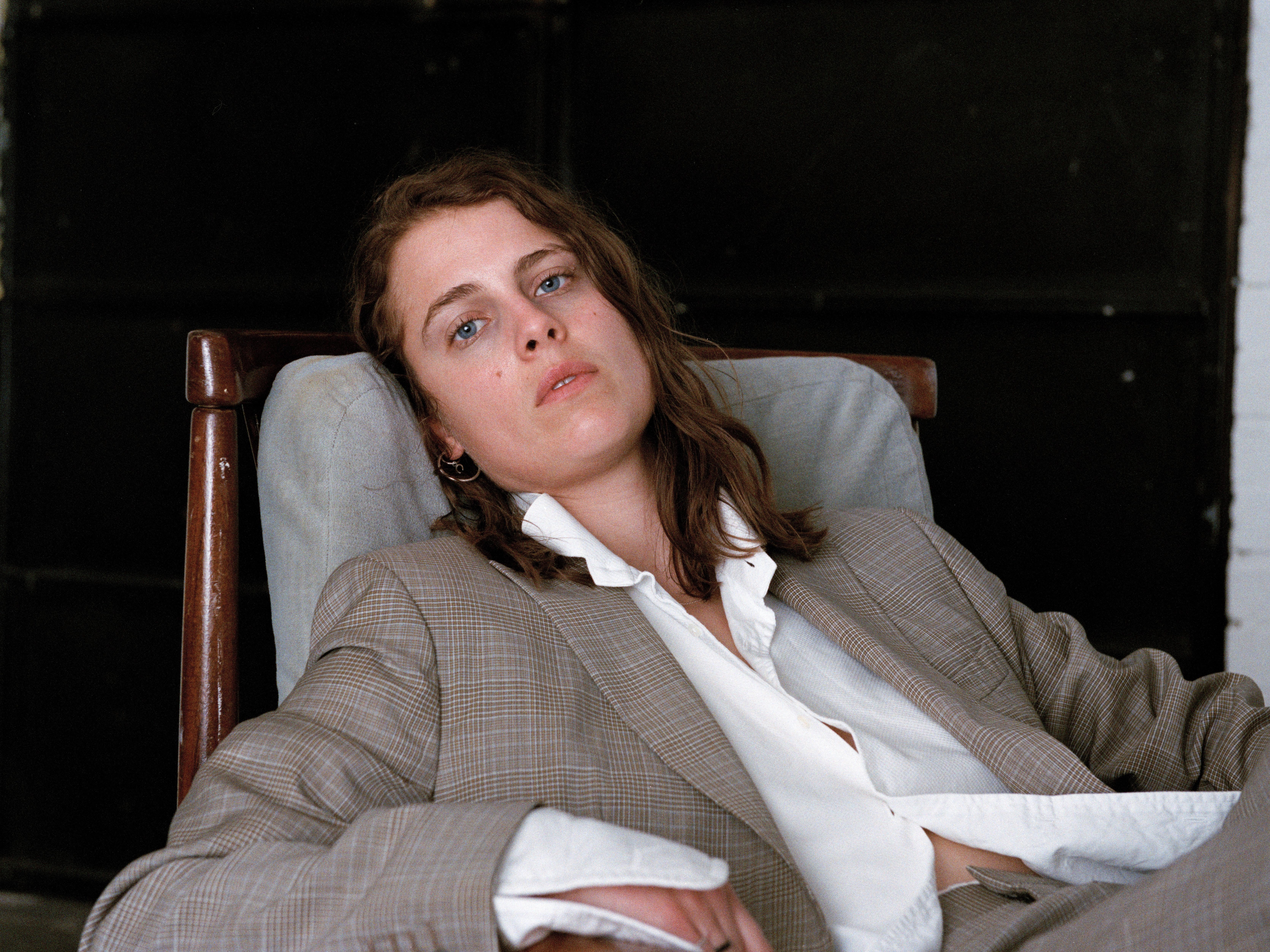
Why did you choose this kind of cover?
The cover is inspired by Dutch photographer Rineke Dijkstra. I was studying art when I was 17 and I saw a series she did of new mums with their babies just after delivery. There‘s something very feminine in a non-sexualized way about it. It is really powerful but also incredibly vulnerable and it‘s got this relaxed stark beauty to it too. I had it all in my head when I was thinking about the album in the way it‘s encompassing all facets of the emotional character. There‘s stuff in the lyrics that is quite ugly, it doesn‘t really shed me in a particularly good light. There‘s also stuff that is very tender, there‘s things that are really sad, there‘s humour all over it, there‘s arrogance and swagger and vulnerability. I wanted to encapsulate that kind of rawness in the same way she did with those pictures. I thought it would really represent the album well.
And then you chose a piglet…
(laughs) Yeah, a piglet because I probably wouldn‘t be able to carry a proper pig very long…but yeah, we project a lot of ideas on pigs and what kind of animals they are. They‘re viewed as dirty and stupid and we eat them and we don‘t treat them very well and it‘s an insult and this kind of stuff. But I always loved pigs, I grew up in the countryside. They‘re very intelligent, they have a very similar genetic build in their flesh that makes it most similar to human meat. They‘re quite sexual, they can have an orgasm a very long time, they‘re sociable, they‘re very clean, there‘s all this stuff about them. They‘re very complex creatures that we have sort of decided they are not. They are this thing to be ridiculed, this thing as an insult. So it‘s me holding this pig and it‘s like: You‘re okay, mate? We need to just stop making up ideas about what we think other people are like and what‘s good or bad or okay. We just need to accept each other and accept that we‘re all different and we have these different traits.
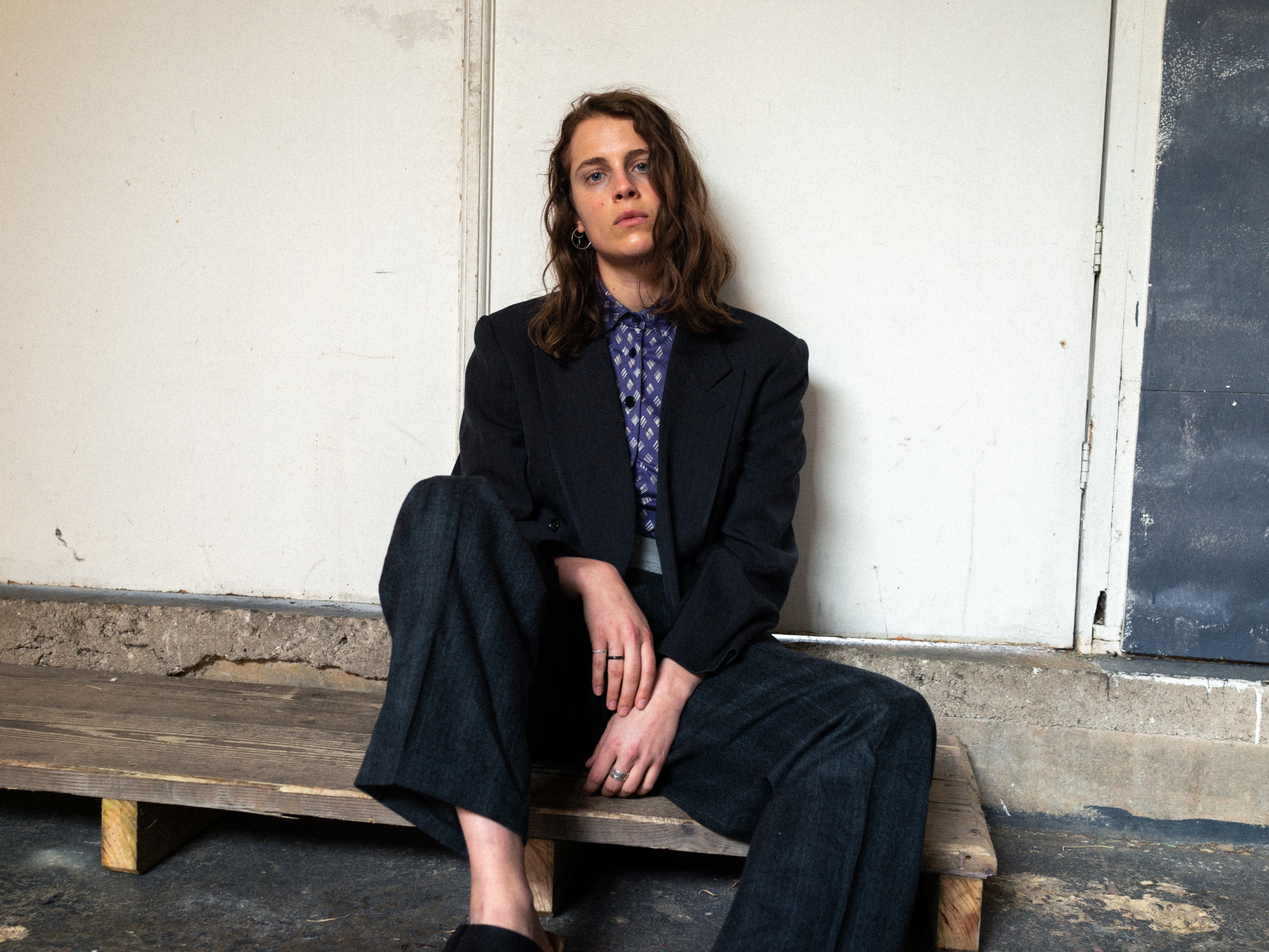
How many records by Tori Amos do you own?
(laughs) Haha, I actually own zero, but I saw the picture of that cover after we‘ve made this one, she is breastfeeding that pig, isn‘t she?
On one photo of the CD inlay you can see her breastfeeding this sort of animal, yeah. Tori Amos had to explain herself after the release of the album Boys For Pele, obviously. She said: The suckling pig made me want to be a mother. Picking up on what you said about Rineke Dijkstra and her pictures of mothers after delivery, do you toy with the idea of motherhood too, maybe secretly?
Oh, I don‘t know. I‘ve no idea. (takes time to think) I‘m very focused on me now, you know I‘m only 27. It‘s a nice idea to raise a child and it‘s an exciting prospect. I don‘t know how I feel about bringing a child into the world. I would say that if I was going to go into the idea of raising a child I‘d probably rather adopt. There‘s so many kids that need a good home and to be looked after, that idea appeals to me. I have a maternal streak, I have that nurturing side to me. But I‘m also very ambitious and I want to do me for a long time I think before I kind of settle down and do anything with that weight of responsibility. It‘s a hard question to answer. I was never one of those little girls who wanted to be a mum. Let‘s see what happens along the way though. Life is interesting and exciting and strange and scary. I‘m happy to plough through and work it out for myself.
You‘re wandering well. Lovely piece of work. Thanks, Marika.
(laughs) Great! Thanks for that.








